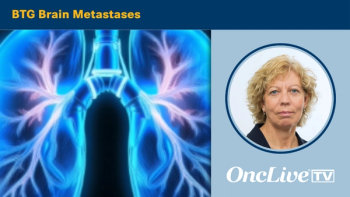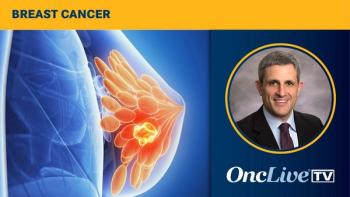
Dr Yee on Neoadjuvant Datopotamab Deruxtecan Plus Durvalumab in Early-Stage Breast Cancer
Douglas Yee, MD, discusses datopotamab deruxtecan and durvalumab in the neoadjuvant setting for early-stage breast cancer.
Douglas Yee, MD, director, Masonic Cancer Center at the University of Minnesota, discusses the results from phase 2 I-SPY2.2 trial (NCT01042379) for combination of datopotamab deruxtecan (Dato-DXd) and durvalumab (Imfinzi) in the neoadjuvant setting for breast cancer.
Findings from the I-SPY2.2 trial presented at
Yee notes that this patient cohort included some individuals with hormone receptor–positive disease, demonstrating the potential of this regimen to improve pCR rates across different breast cancer subtypes when used within a biomarker-defined population.
These results suggest Dato-DXd plus durvalumab may offer an effective alternative to traditional chemotherapy in the neoadjuvant setting, particularly for patients identified as immune-positive through predictive biomarkers, Yee explains. The trial's observed pCR rates in this subgroup highlight the importance of precision medicine in tailoring neoadjuvant treatments to individual patients' tumor biology, he adds.
Yee suggests that this combination therapy could lead to a shift away from conventional chemotherapy approaches, paving the way for more targeted therapies and less toxic treatment options in the neoadjuvant setting.
These results warrant further investigation in larger trials to confirm the efficacy and safety of this regimen and to explore its potential integration into standard treatment protocols for breast cancer, Yee concludes.




































